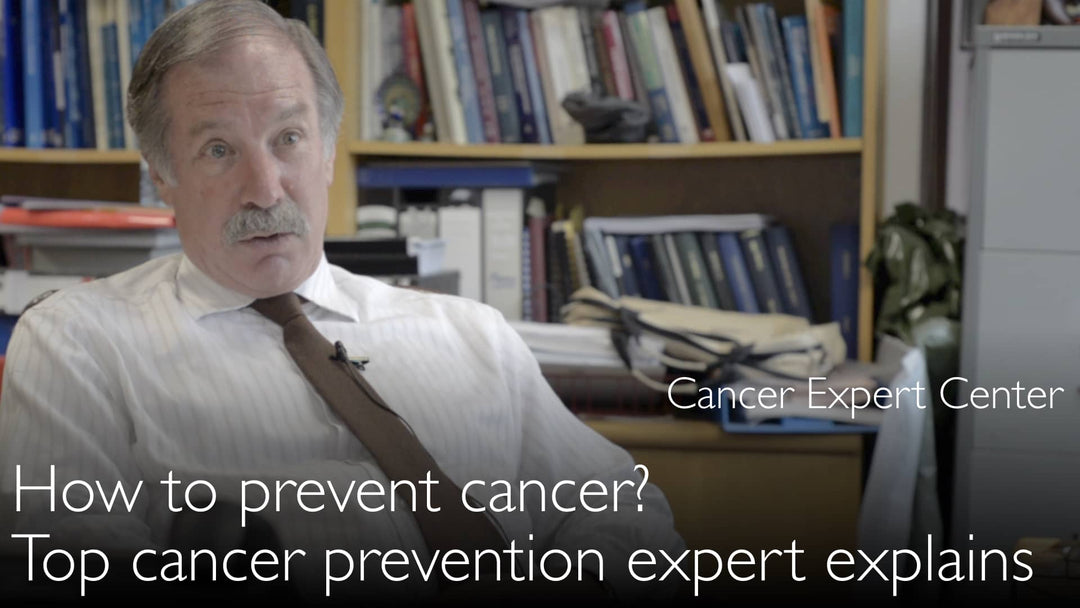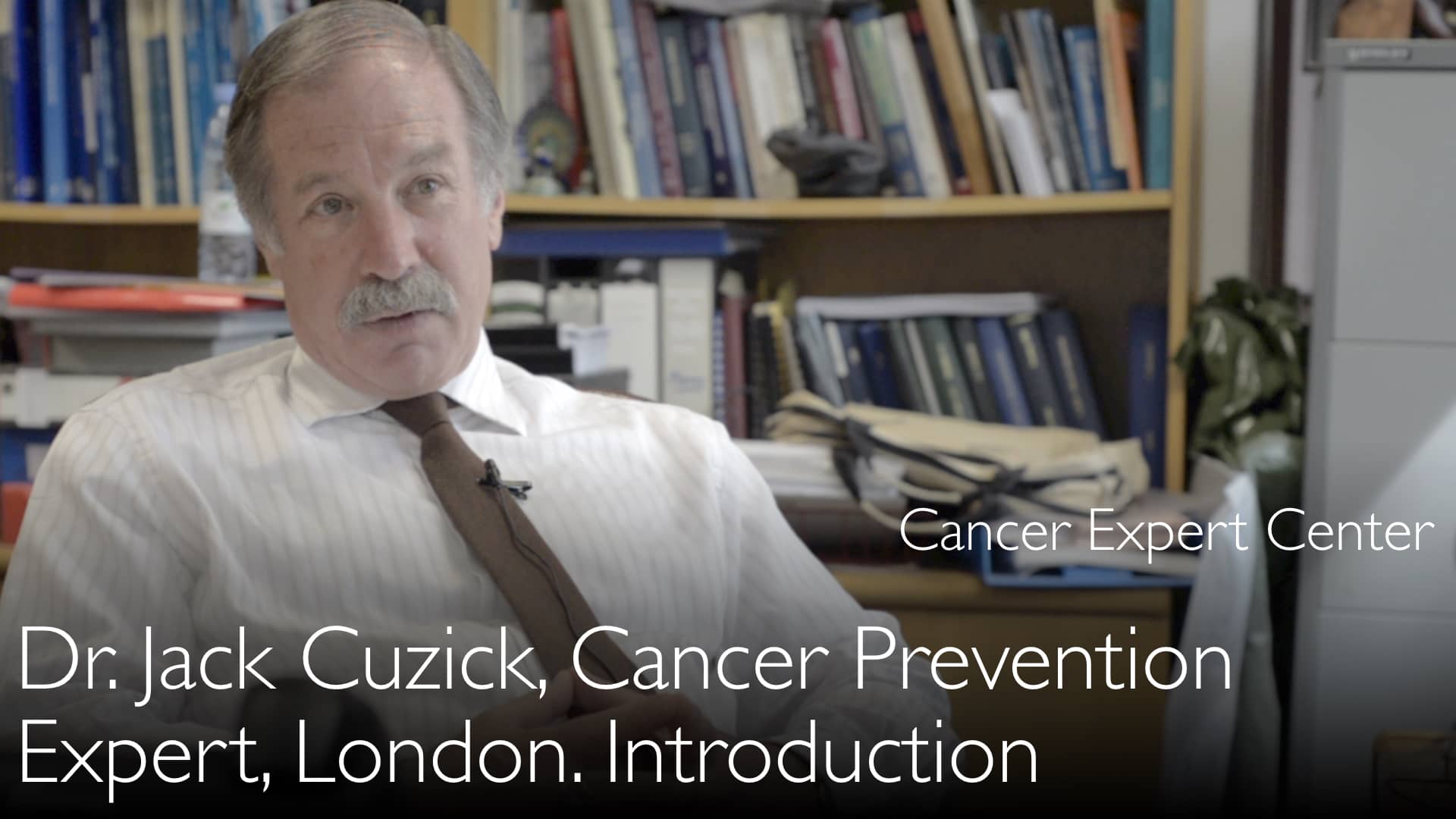מומחה מוביל במניעת סרטן, ד"ר ג'ק קוזיק, MD, PhD, מסביר כיצד להפחית את הסיכון לסרטן באמצעות אסטרטגיות מוכחות כמו הפסקת עישון, שליטה במשקל, פעילות גופנית ושימוש באספירין, תוך פירוט המגבלות של תוספי תזונה והתפקיד המורכב של בדיקות סקר לסרטן.
אסטרטגיות יעילות למניעת סרטן: גישות מבוססות ראיות להפחתת הסיכון שלך
קפיצה לפרק
- גמילה מעישון: הגורם החשוב ביותר הניתן למניעה
- ניהול משקל ופעילות גופנית
- התפקיד הקריטי בשליטה על צריכת סוכר
- הערך והאתגרים של בדיקות סקר לסרטן
- אספירין למניעת סרטן: הזדמנות משמעותית
- גורמים תזונתיים ומיתוסים על תוספים
- אלכוהול ובשר אדום: הבנת הסיכונים
- גישה מאוזנת למניעת סרטן
גמילה מעישון: הגורם החשוב ביותר הניתן למניעה
ד"ר ג'ק קוזיק, MD, PhD, מזהה את השימוש בטבק כגורם הסרטן החשוב ביותר הניתן למניעה. הוא מציין כי ירידה דרמטית בעישון סיגריות בעולם המפותח הובילה ישירות לירידה משמעותית בשכיחות סרטן הריאות. ד"ר ג'ק קוזיק, MD, מדגיש כי גמילה מעישון חיונית ביותר לכל אסטרטגיה יעילה למניעת סרטן.
ניהול משקל ופעילות גופנית
מעבר לעישון, ד"ר ג'ק קוזיק, MD, PhD, מדגיש את הראיות הברורות המקשרות בין השמנה לסיכון מוגבר לסרטן. הוא מייעץ להימנע מהשמנה ולהישאר פעילים גופנית, וציין כי אנשים המתעמלים באופן קבוע מפתחים פחות סרטן מאלו שלא. ד"ר קוזיק מציין כי אף ששיפור אורח החיים הוא תחום דאגה מרכזי, מאמצי בריאות הציבור לא הצליחו ברובם לבלום את מגפת ההשמנה.
התפקיד הקריטי בשליטה על צריכת סוכר
במכון וולפסון למניעת סרטן בלונדון, ד"ר ג'ק קוזיק, MD, PhD, ועמיתיו מתמקדים בשליטה על צריכת הסוכר התזונתית. הוא מזהה את הסוכר כגורם מרכזי להשמנה, סוכרת, סרטן ומחלות לב וכלי דם. ד"ר ג'ק קוזיק, MD, מציין כי מציאת דרכים לשלוט על צריכת הסוכר היא אתגר בריאותי ציבורי חדש אך חיוני שזקוק לתשומת לב רבה יותר.
הערך והאתגרים של בדיקות סקר לסרטן
ד"ר ג'ק קוזיק, MD, PhD, מאשר כי בדיקות סקר לסרטן עובדות וחשובות. הוא מצטט ראיות מאוד ברורות התומכות בבדיקות סקר לסרטן צוואר הרחם, סרטן השד וסרטן המעי הגס. עם זאת, בדיקות סקר לסרטן הערמונית מציבות אתגר ייחודי; בעוד שהן כנראה מונעות מחלה, הבעיה של טיפול יתר בסרטן הערמונית הובילה מומחים רבים למסקנה כי בדיקות סקר שגרתיות צריכות להמתין עד שיהיה הבנה טובה יותר כיצד לטפל בנגעים מוקדמים.
אספירין למניעת סרטן: הזדמנות משמעותית
אסטרטגיה מרכזית למניעת סרטן שד"ר ג'ק קוזיק, MD, PhD, דן בה היא השימוש באספירין. הוא מציין שלא נעשה מספיק כדי לקדם שימוש באספירין למטרה זו, למרות ראיות המצביעות על כך שזה יכול להוביל לירידה של 10% בשכיחות ובתמותה מכל הסרטנים. ד"ר קוזיק רואה בזה צעד קדימה פוטנציאלי עצום ואתגר מרכזי לעתיד הקרוב הוא ליישם אסטרטגיות שכבר ידוע שהן עובדות.
גורמים תזונתיים ומיתוסים על תוספים
ד"ר ג'ק קוזיק, MD, PhD, מסביר שההבנה של גורמים תזונתיים ספציפיים במניעת סרטן מוגבלת bastante. הוא מתייחס למחקרים קליניים גדולים שהפריכו את האמונה שויטמין A, בטא-קרוטן, ויטמין E או סלניום יכולים למנוע סרטן. למעשה, חלק מהתוספים, כמו ויטמין A במעשנים, הראו השפעה מזיקה קלה, ותוספי ויטמין E וסלניום במחקר SELECT actually increased some cancers.
אלכוהול ובשר אדום: הבנת הסיכונים
קיימות ראיות שבשר אדום ומעובד קשורים לסיכון מוגבר לסרטן המעי הגס, aunque ד"ר ג'ק קוזיק, MD, PhD, מציין שההשפעה הכללית קטנה. אלכוהול הוא גם גורם ידוע לסרטן מסוים. ד"ר קוזיק מציע שלמרות שהחברה לא צפויה להפוך לחופשית מאלכוהול, הגבלת צריכת האלכוהול הגיונית מאוד לבריאות הכללית ולמניעת סרטן.
גישה מאוזנת למניעת סרטן
ד"ר ג'ק קוזיק, MD, PhD, מייעץ לא לתת למניעת סרטן להפוך לאובססיה, וציין שהנאה מהחיים חשובה. השקפתו האישית היא לזהות ולדבוק באסטרטגיות המרכזיות שיש להן השפעה מוכחת, לנסות להימנע מפעולות הגורמות לסרטן, ולחיות את החיים אחרת כמה שיותר בשמחה. במהלך שיחתו עם ד"ר אנטון טיטוב, MD, ד"ר קוזיק גם סיפק הקשר לעלייה בשיעורי הסרטן, והסביר שהצלחות במניעת מחלות לב וכלי דם משמעותן שאנשים חיים מספיק זמן כדי לפתח בסופו של דבר מצבים אחרים כמו סרטן. המטרה, הוא מסכם, היא לעכב את הופעת המחלה ככל האפשר.
תמלול מלא
ד"ר אנטון טיטוב, MD: אתה אחד המומחים המובילים בעולם למניעת סרטן. איך למנוע סרטן? איך למזער ולהפחית את הסיכונים להתפתחות סרטן?
ד"ר ג'ק קוזיק, MD: זו שאלה מעניינת. אנחנו יודעים מאוד clearly that the single most important avoidable cause of cancer is tobacco use. There have been dramatic improvements in the developed world in reduction of cigarette smoking. This has shown dramatic reductions in lung cancer incidence. So cessation of smoking is crucial to any cancer prevention.
ד"ר אנטון טיטוב, MD: עישון, אנחנו יודעים, הוא גורם מרכזי לסרטן. האם יש אמצעים נוספים למניעת סרטן?
ד"ר ג'ק קוזיק, MD: We don't have quite such clear evidence for them. But there are clear benefits for several other strategies to prevent cancer. Avoid obesity. Remain physically active. There is clear evidence that obesity is associated with cancer. There is clear evidence that physically active people get less cancer than those that don't exercise regularly. So those things we can be pretty certain are important.
How to improve a person's lifestyle is a major area of concern. I think we have been very unsuccessful in avoiding the obesity epidemic. Obesity is a major public health problem. Here at the Wolfson Institute of Cancer Prevention in London, we work to control the amount of sugar that we allow into our diet. Sugar is a major cause of obesity, diabetes, cancer, and cardiovascular disease. So we need to do more to control intake of sugar.
I think that's a recent problem. We do need to find ways to control sugar consumption. Keeping physically active is good for a range of diseases. Only one of them is cancer. If you keep physically active, you feel better, and cardiovascular disease is also reduced. So I think that's useful.
Screening for cancer is important. We know that cancer screening works. There is very clear evidence that screening for cervix cancer, for breast cancer, for colorectal cancers is important. Prostate cancer screening is a challenge. It probably does prevent disease. But we have this major challenge of excessive treatment of prostate cancer.
This problem has led many physicians and researchers to say that we are probably not ready to screen for prostate cancer routinely until we get a better understanding of how to treat early lesions. This is probably the major strategy of cancer prevention.
The other major cancer prevention strategy is aspirin. We are not doing very much about promoting aspirin use for cancer prevention. A 10% reduction of all cancer incidence and mortality by aspirin would be a huge step forward. We do appear to have the means to do that.
I think one of our challenges for the near future is to make cancer prevention strategies work for things that we do know work. In terms of diet, I think we're still a long way from any clear understanding. We know that overeating and becoming obese is a bad idea for health. But all of these ideas about specific aspects of diet have not really resulted in reducing cancer.
There was a belief that vitamin A and beta-carotene could prevent cancer. Large clinical trials were done in people at high risk of lung cancer because of smoking. Vitamin A had no benefit for lung cancer prevention. Vitamin A had a slightly harmful effect on lung cancer risks.
More recently, there is the SELECT clinical trial in the United States. This clinical trial investigated vitamin E and selenium as a cancer prevention strategy. Epidemiology suggested that selenium and vitamin E might reduce cancer. But supplementation of diet with vitamin E and selenium has not led to reduction in cancer. In fact, it increased some cancers.
So our understanding of what specific dietary factors are important is really quite limited. There is also some evidence that red meat is associated with rectal cancer. Processed meats may increase risk of colorectal cancer. But again, that's a very small effect overall.
Alcohol does cause some cancers. There is a real question about to what levels you would reduce alcohol consumption. I don't think we're going to become an alcohol-free society. But certainly limiting your alcohol intake makes a lot of good sense.
We don't want cancer prevention to become an obsession. Clearly, enjoying life is important. But it's important to not do things that can have major negative impacts so you can't enjoy your life.
So my personal view is this: you find out the major cancer prevention strategies. You do certain things that have impact on cancer. You try to avoid cancer-causing actions. And then you live your life otherwise as happily as you can!
ד"ר אנטון טיטוב, MD: Macmillan Cancer Support מעריך שכמעט 50% מהאנשים יפתחו סרטן במהלך חייהם. אתה סמכות מרכזית במניעת סרטן. האם יש משהו נוסף שתרצה להוסיף לשיחתנו?
ד"ר ג'ק קוזיק, MD: I think there are several reasons that cancer is becoming more common in terms of percentage of population. Because we had really quite big successes in preventing cardiovascular disease. People die eventually and get some disease. So just looking at the proportion of the population who get cancer isn't the whole story.
It's important to delay diseases as late as possible. We're all going to die at some stage. So we're not going to become completely cancer-free. But getting cancer when you are 90 years old is less of a problem than getting cancer when you are 40 or 50.
ד"ר אנטון טיטוב, MD: פרופסור קוזיק, תודה רבה לך על השיחה המאוד מעניינת. אנחנו מצפים להמשיך לראות תוצאות מהמחקרים הקליניים הבינלאומיים שלך ומהמנהיגות שלך! תודה רבה!





